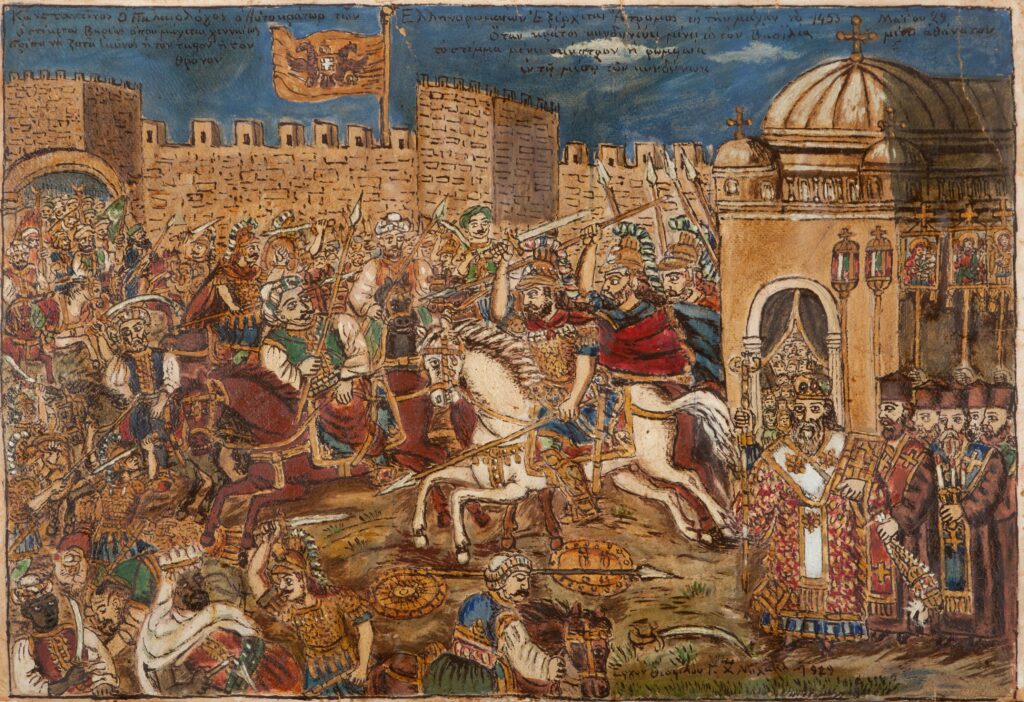Page 4 of 10
Father Robert McTeigue Discusses The Abuse Of Tolerance
Dr. Duke and Father Robert McTeigue Talk about the Abuse of Tolerance.
Watch the interview on the Freedom Project Media.
Michael Warren Davis Responds to Fr. McTeigue

Michael Warren Davis responded to Fr. McTeigue’s New Oxford Review essay, The False Hope of a “More Apostolic Church”. Read the response on his Substack.
THE FRONTLINE with Joe & Joe: Fr. Robert McTeigue: Christendom – Lost & Found
Father discusses his new book ‘Christendom – Lost & Found’ on THE FRONTLINE with Joe & Joe.
Pastors to Newsmax: Defense of Trans Community Sparks War on Church
“We are witnessing now a war against the church, against Christ, against creator, against creation, against creature, and anyone who’s familiar with the scriptures should not be surprised by this,” McTeigue told “The Chris Salcedo Show.“
See this interview on Newsmax.
The Catholic Conversation Podcast: Fr. Robert McTeigue on Rebuilding Our Culture
Listen to the interview on The Catholic Conversion Podcast channel.
Dr. Duke Interviews Father Robert McTeigue, S.J.
Dr. Duke has an important conversation with Father Robert McTeigue about the current state of Christian theology, and the anti-gospel mutation of social-justice Christianity.
Watch the interview on the Freedom Project Media.
What Many Priests No Longer Believe
Lex orandi, lex credendi, lex vivendi. Loosely translated: “The norm of prayer governs the norm of belief; the norm of belief governs the norm of living.” Many priests nowadays (including myself) are asking, “What if there’s deficient lex in the orandi? Won’t that diminish the credendi and vivendi?”
I’ll summarize here the very many conversations I’ve had with numerous priests from across the country. These are faithful priests with a zeal for souls. Precisely because they are good shepherds, they’ve found themselves becoming increasingly bewildered and heartsick. Their pain now follows a predictable pattern. Their anguish and discouragement spikes on weekends, when they must offer Masses with their congregations. Why?
The False Hope of a “More Apostolic Church”
Here’s a misleading phrase: “You can’t turn back the clock.” At face value, it’s unobjectionable. Apart from science fiction, humans experience time only as flowing forward. Time cannot be undone.
As part of a rhetorical strategy, “You can’t turn back the clock” can be deployed to show that however intense the nostalgia for the putative original innocence of the “Good Old Days,” we can’t get there from here. Fair enough. In this sense, history is replete with instances of people trying — and failing — to “turn back the clock.” A perusal of the list of “communes,” both religious and secular, that ostensibly were established to show the human race how to return to Paradise would suffice to illustrate the point.
Read the New Oxford Review essay.
Divine Mercy Radio: Interview with Father
Father McTeigue tells part of his vocation story, before talking about his latest book.
NEW Audiobook Available!
Sticky post‘Real Philosophy for Real People’ is now available as an audiobook!
Purchase here: https://a.co/d/hA1D322
Listen to a sample:
